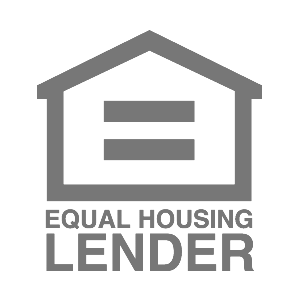
Your health and credit score are two vital pillars of financial well-being. Yet for many Americans, a medical issue threatens both. As healthcare costs continue rising year after year, more families find themselves struggling with unmanageable medical bills.
Until recently, even small unpaid medical debts could severely damage your credit and stay on your record for years. Thankfully, new rules give consumers more breathing room. As of April 2023, the major credit bureaus no longer include medical debts under $500 or those that have been paid. Medical charges must be at least one year old to impact your score.

Get the cash you need with a low-interest personal loan today
While this updated rule provides relief, outstanding hospital bills still pose risks if not addressed. Debt collectors can still pursue payment aggressively. High balances can affect your future credit. And the financial stress alone can take its toll on your wellness.
How to reduce your medical bill debt
According to the American Hospital Association, there are two reasons why medical bill debt is so high: a lack of adequate health care coverage and high-deductible plans that push costs onto patients.
Managing medical debt can feel overwhelming, but taking action is important for your financial health. Here are some effective tips for reducing the amount you owe:
Review your medical bills for errors
Medical bill errors are more common than you might think, so requesting an itemized bill and looking for any duplicate or incorrect charges could be a good idea.
You’ll see Current Procedural Terminology (CPT) codes on your bill. You can look these up to make sure they accurately describe the treatment you received. If something sounds off, call your doctor and ask about it.
Negotiate with your provider
If your bills look correct, the next step is to call the hospital or doctor’s office and ask to speak with the billing department. Explain your financial situation and that you need help lowering your bill.
The key is to be proactive, honest about what you can afford, and flexible in finding an option that works for both sides. Like you, doctor’s offices want to resolve your debt as soon as possible. Many are willing to accept a fraction of what you owe if it means getting your debt off their books quickly.
Tip: If you have a lump sum of cash from a tax refund or other savings, consider putting it toward your medical debt.
Set up a payment plan
Rather than trying to come up with a lump sum, ask your provider about a monthly payment plan. Agreeing to regular, affordable payments can prevent debt from going to collections and avoid additional fees.
Make sure to get payment terms in writing to avoid future disputes. Stick to the payment schedule to maintain your agreement.
Look into financial assistance programs
Most major hospitals offer financial assistance to uninsured or underinsured patients who meet income requirements. In fact, nonprofit hospitals are required to have some form of charity care. These programs can help reduce or even eliminate your medical bills, so don’t hesitate to ask about them.
Programs vary but are generally available to those at or below 200% to 400% of the federal poverty level. If approved, the hospital may grant you medical debt forgiveness or set you up with a more affordable monthly payment plan.
Consider a medical credit card
Medical credit cards like CareCredit allow you to pay large medical bills over time through a special financing plan. They offer 0% intro APR periods typically ranging from 12 to 24 months (about two years), depending on the amount charged.
If you pay off the entire balance before the promo period ends, you pay no interest. This allows you to break up costs into manageable monthly payments.
But if any balance remains after, you’ll be charged very high retroactive interest on the full original charge. So only use a medical credit card if you’re certain you can pay off the balance during the 0% APR period.
Used responsibly, medical credit cards can be an affordable way to pay off medical debt over time. Just make sure you can afford the monthly payment, and read all terms closely so you know when the higher interest rate will kick in.
Use personal loans cautiously
Personal loans allow you to consolidate multiple medical debts into one loan, which can simplify repayment. However, interest rates on personal loans could be higher than what your provider charges.
So, while consolidating through a loan can help organize payments, you could end up paying more overall in interest. Only consider a personal loan if you have a good credit history to qualify for a low rate, and make sure you can afford the monthly payment. Explore healthcare financing options through Prosper.
Tap into your home equity
Using home equity to pay medical debt can make sense in certain situations, such as paying medical bills. The main benefit is you can access funds at a lower interest rate than high-rate options like credit cards or personal loans.
But you’re putting your home on the line as collateral, so if you later run into issues repaying the loan, you could lose your home. You also need a good credit score to qualify.
Only consider tapping equity if you have substantial built-up value and a steady income to comfortably handle payments. Even then, be conservative in how much you borrow-don’t take out more than you absolutely need. Explore all other lower-risk options before moving to home equity as a last resort.

Get the cash you need with a low-interest personal loan today
Dealing with medical bill debt
When it comes to paying off medical bills and becoming debt-free, the key is communicating proactively with your medical providers.
Don’t ignore the bills, as debt can quickly be sent to collections. No matter how bleak your situation may be, options are available to make medical debt more manageable and less of a long-term burden.
Written by Cassidy Horton
Cassidy Horton is a finance writer who’s passionate about helping people find financial freedom. With an MBA and a bachelor’s in public relations, her work has been published over a thousand times online by finance brands like Forbes Advisor, The Balance, PayPal, and more. Cassidy is also the founder of Money Hungry Freelancers, a platform that helps freelancers ditch their financial stress.
All personal loans made by WebBank.
Eligibility for a home equity loan or HELOC up to the maximum amount shown depends on the information provided in the home equity application. Depending on the lender, loans above $250,000 may require an in-home appraisal and title insurance. Depending on the lender, HELOC borrowers must take an initial draw of the greater of $50,000 or 50% of the total line amount at closing, except in Texas, where the minimum initial draw at closing is $60,000; subsequent HELOC draws are prohibited during the first 90 days following closing; after the first 90 days following closing, subsequent HELOC draws must be $1,000, or more, except in Texas, where the minimum subsequent draw amount is $4,000.
The amount of time it takes to get funds varies. It is measured from the time the lender receives all documents requested from the applicant and depends on the time it takes to verify information provided in the application. The time period calculation to get funds is based on the first 4 months of 2023 loan fundings, assumes the funds are wired, excludes weekends, and excludes the government-mandated disclosure waiting period.
For Texas home equity products through Prosper, funds cannot be used to pay (in part or in full) non-homestead debt at account opening.
Depending on the lender, qualified home equity applicants may borrow up to 80% – 95% of their primary home’s value and up to 80% – 90% of the value of a second home. In Texas, qualified applicants may borrow up to 80% of their home’s value. HELoan applicants may borrow up to 85% of the value of an investment property (not available for HELOCs).
Home equity products through Prosper may not be available in all states.
All home equity products are underwritten and issued by Prosper’s Lending Partners. Please see your agreement for details.
Prosper Marketplace, Inc. NMLS# 111473
Licensing & Disclosures | NMLS Consumer Access
